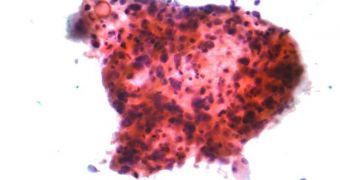In a paper published in a recent issue of the journal Psycho-Oncology, experts revealed that lung cancer patients are oftentimes depressed because they feel a sense of shame and isolation, as well as rejection from others. This may explain why the incidence of depression in this group is so high.
The new study was led by investigators at the Moffitt Cancer Center (MCC), in Tampa, Florida. They determined that this state of affairs has a lot to do with the way society perceives lung cancer.
Due to the widespread belief that this form of cancer is associated exclusively with smoking, most people consider it to be a preventable condition. This leaves patients – regardless of whether they smoked or not – with a deep sense of shame, which leads to depression in many cases.
The new study was conducted precisely so that scientists could discover the psychosocial links connecting these two, seemingly unrelated, conditions. At the same time, the work was meant to determine why so much variation exists in the incidence of depression across multiple cancers.
The work was carried out on patients who had been diagnosed with stage II, III or IV non-small cell lung cancer, who participated in the research by filling out a few questionnaires, PsychCentral reports.
“We found that 38 percent of those in the survey suffered from depression,” explains MCC Department of Health Outcomes and Behavior expert, Brian D. Gonzalez, also a coauthor of the research paper.
“Patients may blame themselves for developing lung cancer and feel stigmatized. Even lung cancer patients who have never smoked often felt – accurately or inaccurately – that they were being blamed for their disease by friends, loved ones and even health care professionals,” adds Paul B. Jacobsen, PhD.
The expert, who was also a coauthor of the study, holds an appointment as the MCC associate center director of population sciences.
“Documenting this link between stigma and depression is important because it adds further evidence to the growing body of research suggesting a link between illness-related stigma and the symptoms of depression,” he goes on to say.

 14 DAY TRIAL //
14 DAY TRIAL //